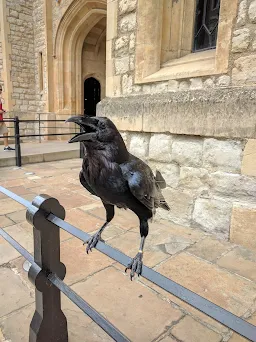"I am not a fanciful person, but I give you my word that I seemed to hear Moriarty’s voice screaming at me out of the abyss."
In all the annals of Sherlock Holmes, there is only one recorded instance of him personally taking another life...Moriarty, mano a mano, at the Reichenbach Falls. This is well l known.
What isn't known is how Holmes felt about causing that death? (I know, the unfeeling Mr. Holmes. Hogwash.) Certainly it was self-defense. But certainly it was premeditated. And he watched the man plunge to his death. Never to face justice. How did that make him feel?
I think it shocked him to his core. I think he felt insupportable guilt and shame. So much that he could not face his beloved London for three whole years. What else could explain his decision to abandon his beloved London to the predations of the criminal underworld? Fear for his life? Please. Does that sound like Sherlock Holmes, who had always faced danger head on? And with the trials of Moriarty's confederates ongoing? Would he not be needed as a material witness?
No. Holmes was undergoing a crisis of the soul. Where did he go? The first name he mentions is Florence; no doubt he continued on to Rome. Then he treks to Lhasa, to meet with the Dalai Lama. From there he goes on to Mecca, no easy task for a city forbidden to unbelievers. If he followed in the path of Sir Richard Burton. he must have spoken at least passable Arabic. Then he pays "a short but interesting visit to the Khalifa at Khartoum." This would have been Abdullahi ibn Muhammad, the Sudanese ruler who had taken up the mantle of Mahdi, the Islamic messiah, upon the death of the original Mahdi, Muhammad Ahnad.Can there be any doubt that Holmes was seeking solace in a variety of what were (to him) a series of exotic religions?
As for his "several months "studying coal-tar derivatives" in Montpellier, I think Holmes was withholding the truth, that he in fact had unfinished business in Montpellier with a French cousin. (For more about this cousin and the reason he mentions coal-tar derivatives, you'll have to wait for my next novel, The Strange Case of the Dutch Painter.)
But none of these ploys offer the peace he seeks, and he finally decides, as he counsels Watson, that "work is the best antidote for sorrow." and turns his face toward home. Yet he has not given up on his spiritual quest entirely. What book does he drop in front of Watson? The Origins of Tree Worship-- seeking answers in his native British Druidism? This, for a man who'd espoused his admiration for the writings of William Winwoode Reade, an avowed atheist, was quite a journey.
But would he have been able to reveal himself to Watson, if not for his accidental meeting with his associate that morning at Park Lane? Perhaps not--not because his affection for Watson had lessened, but because of Watson's role as his public chronicler. He no longer wants the public's eye upon him. He forbids Watson from publishing any new reports, and lays this injunction upon him for a full ten years before he relents.
Did Holmes ever come to terms with the death of Moriarty? In The Strange Case of Eliza Doolittle, I introduce a pet raven to Holmes's retirement--a raven named Moriarty.
But you'll have to wait for my third book (in the works now) The Strange Case of the Pharaoh's Heart, to see whether Holmes at last comes to terms with the blood of Moriarty on his hands.
Until then.





No comments:
Post a Comment